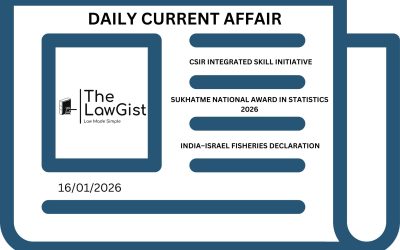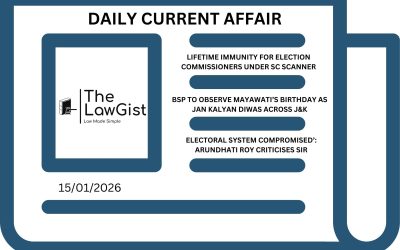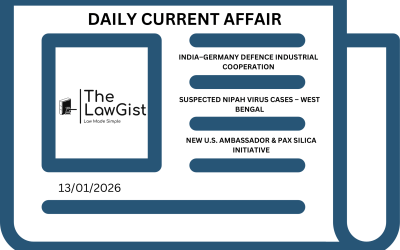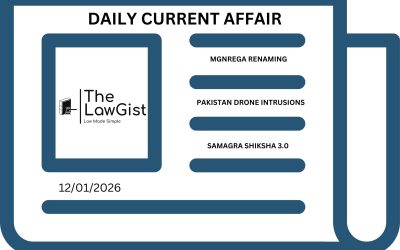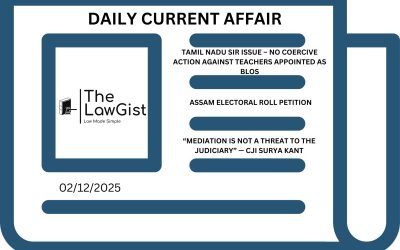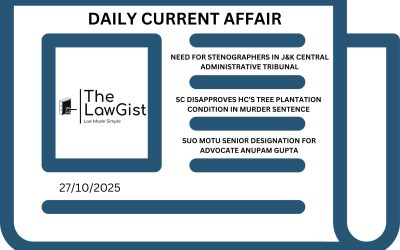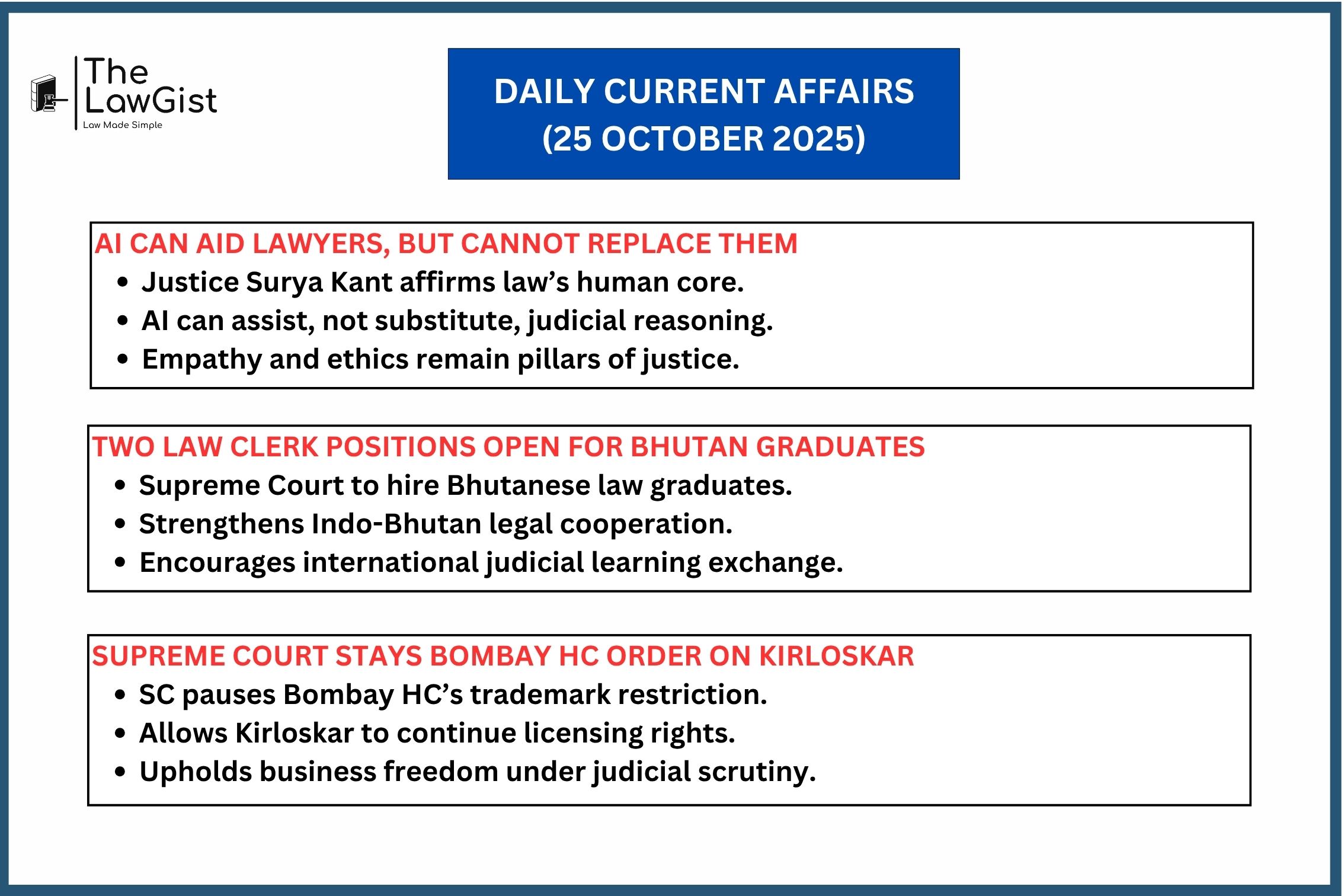
Supreme Court shapes the week’s headlines — reaffirming human touch in justice, expanding clerkships for Bhutan graduates, and protecting Kirloskar’s trademark rights with interim relief.
DAILY CURRENT AFFAIRS (25 OCTOBER 2025)
AI CAN AID LAWYERS, BUT CANNOT REPLACE THEM: JUSTICE SURYA KANT
Overview: Remarks by Justice Surya Kant on AI in the legal profession.
Supreme Court judge Justice Surya Kant emphasized that while AI can assist lawyers by analyzing data and predicting trends, it cannot replace the nuanced judgment, empathy, and discretion required in legal decision-making. Justice stressed that law and justice will remain inherently human enterprises.
Legal Provisions:
- Indian legal system governed by Constitution of India, Articles 141 & 142 (law interpretation and enforcement).
- Information Technology Act, 2000 governs use of AI and technology in professional practices.
- Emphasis on ethical practice and human oversight in legal matters.
Source: 29th National Law Conference
TWO LAW CLERK POSITIONS IN SUPREME COURT OPEN FOR BHUTAN LAW GRADUATES
Overview: Announcement by CJI B.R. Gavai on international recruitment.
Supreme Court Chief Justice B.R. Gavai announced the creation of two law clerk positions specifically for Bhutanese law graduates. This move strengthens cross-border legal exposure, allowing international law graduates to gain practical experience in India’s apex court.
Legal Provisions:
- Supreme Court Rules, 2013 – governs appointment of law clerks.
- Aligns with international cooperation principles under Indian Foreign Service policies.
- Supports development of comparative legal studies and knowledge exchange.
Source: CJI Gavai’s official visit to Bhutan
SUPREME COURT STAYS BOMBAY HC ORDER ON KIRLOSKAR TRADEMARK LICENSING
Case: Kirloskar Brothers Ltd. vs. Enforcement of Bombay HC order.
The Supreme Court stayed the Bombay High Court’s order that restricted Kirloskar Brothers from licensing its trademark. The apex court’s interim stay ensures the company can continue licensing while the case undergoes detailed legal scrutiny.
Legal Provisions:
- Trade Marks Act, 1999 – governs trademark rights, licensing, and infringement.
- Civil Procedure Code, 1908 – interim relief during appellate proceedings.
- Emphasis on balance between intellectual property rights and public interest.
Source: Supreme Court of India
Also Read: DAILY CURRENT AFFAIRS (24 OCTOBER 2025)


